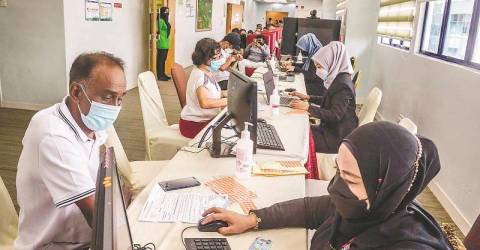AI and the future of vaccination
18 小时前
ARTIFICIAL intelligence (AI) is becoming a powerful force in modern healthcare, particularly in the field of immunisation.
One of its most promising roles is in personalising vaccine recommendations. By analysing a person’s medical history, age, lifestyle and overall health, AI can help doctors make smarter, safer and more effective decisions about vaccination.
Traditionally, vaccines have been administered based on broad population guidelines. However, this one-size-fits-all approach can carry risks, especially for people with underlying health conditions or unknown sensitivities. For some, a vaccine could trigger severe side effects or even death if not assessed properly.
For instance, during the Covid-19 vaccine rollout, Taiwan reported a number of deaths occurring shortly after vaccination, particularly among elderly individuals with preexisting conditions.
While authorities stated that most of these deaths were not definitively linked to the vaccines, the lack of transparent investigations and personalised assessments sparked public concern.
In Malaysia, Dr Roland Victor, who publicly questioned vaccine safety, was acquitted in 2023 after being charged with spreading misinformation. His case was viewed as a win for medical free speech, emphasising the right of healthcare professionals to voice evidence-based concerns without being dismissed as anti-vaccine.
These events highlight the limitations of mass vaccination strategies and the urgent need for more individualised approaches – ones that take into account a person’s health profile, immune status and potential risks.
Precision vaccinology, an emerging field, led by experts like Dr Gregory A. Poland of the Mayo Clinic is at the forefront of this movement. His research shows that factors such as age, sex, microbiome composition and even the time of day can affect how someone responds to a vaccine.
Combined with AI, this knowledge allows for vaccine plans that are not only more effective but also safer for vulnerable individuals.
Top research institutions like Stanford and MIT have also developed AI tools that predict vaccine response using biological markers. These innovations help identify who will benefit most from certain vaccines, who may need boosters and who may require alternative strategies.
AI is also being used to analyse immune markers in those who have recovered from illnesses like Covid-19, determining whether additional shots are necessary or if natural immunity is sufficient.
Despite these advancements, experts stress that AI should complement, and not replace, clinical judgement. “Technology can guide us but it must be used in concert with clinical judgement,” Poland noted in the New England Journal of Medicine. “We need responsible integration of AI into healthcare systems, always centered around the patient.”
As AI continues to advance, its role in preventive care will only expand. Personalised vaccine strategies will not only improve individual outcomes but also enhance the efficiency of public health systems.
With thoughtful oversight, AI has the potential to become a powerful ally in creating safer and smarter vaccination plans, one patient at a time.
Dr Asraf Mohamed Moubark, Dr Aqilah Baseri Huddin, Dr Fazida Hanim Hashim are from the Digital Signal Processing Research Group, Department of Electrical, Electronic and Systems Engineering, Faculty of Engineering and Built Environment, University Kebangsaan Malaysia. Comments: [email protected]
...Read the fullstory
It's better on the More. News app
✅ It’s fast
✅ It’s easy to use
✅ It’s free









